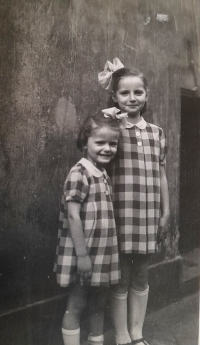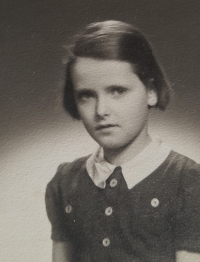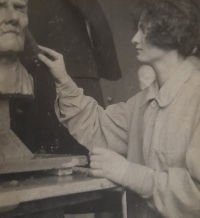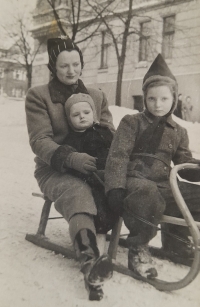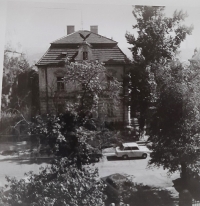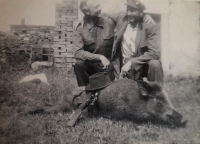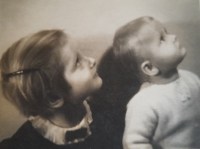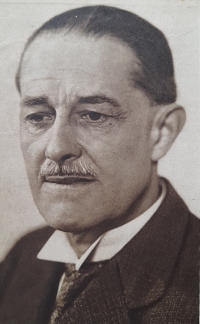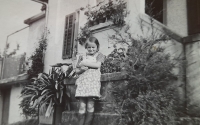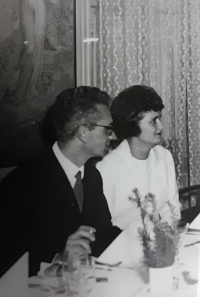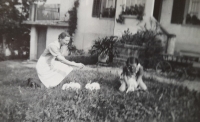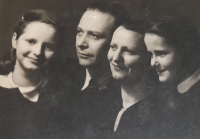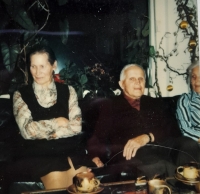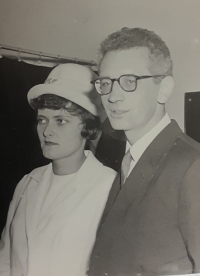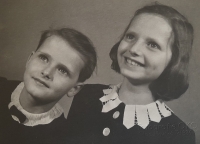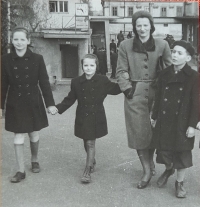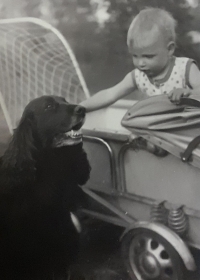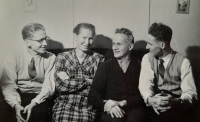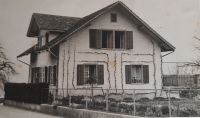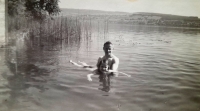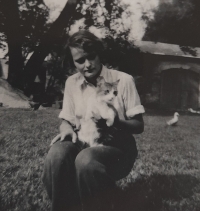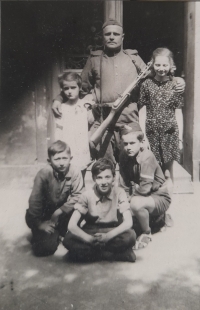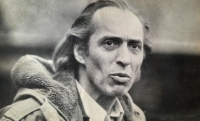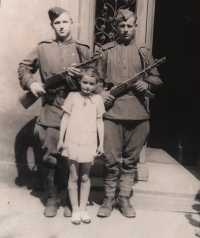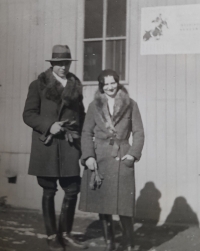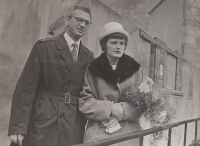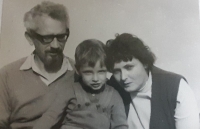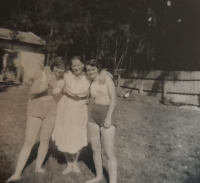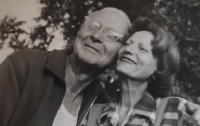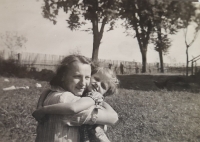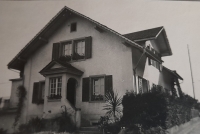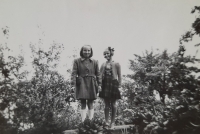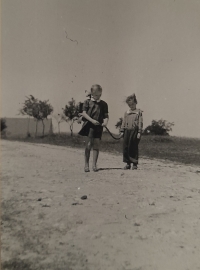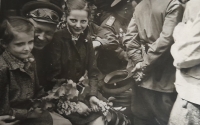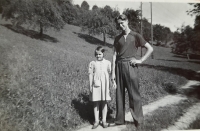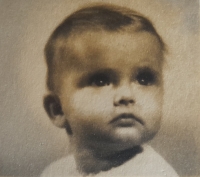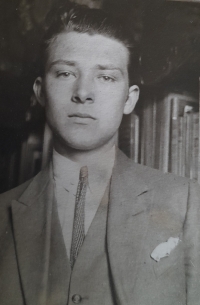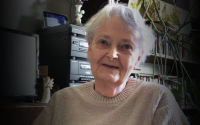My mother tore off his yellow star and he started going out with us
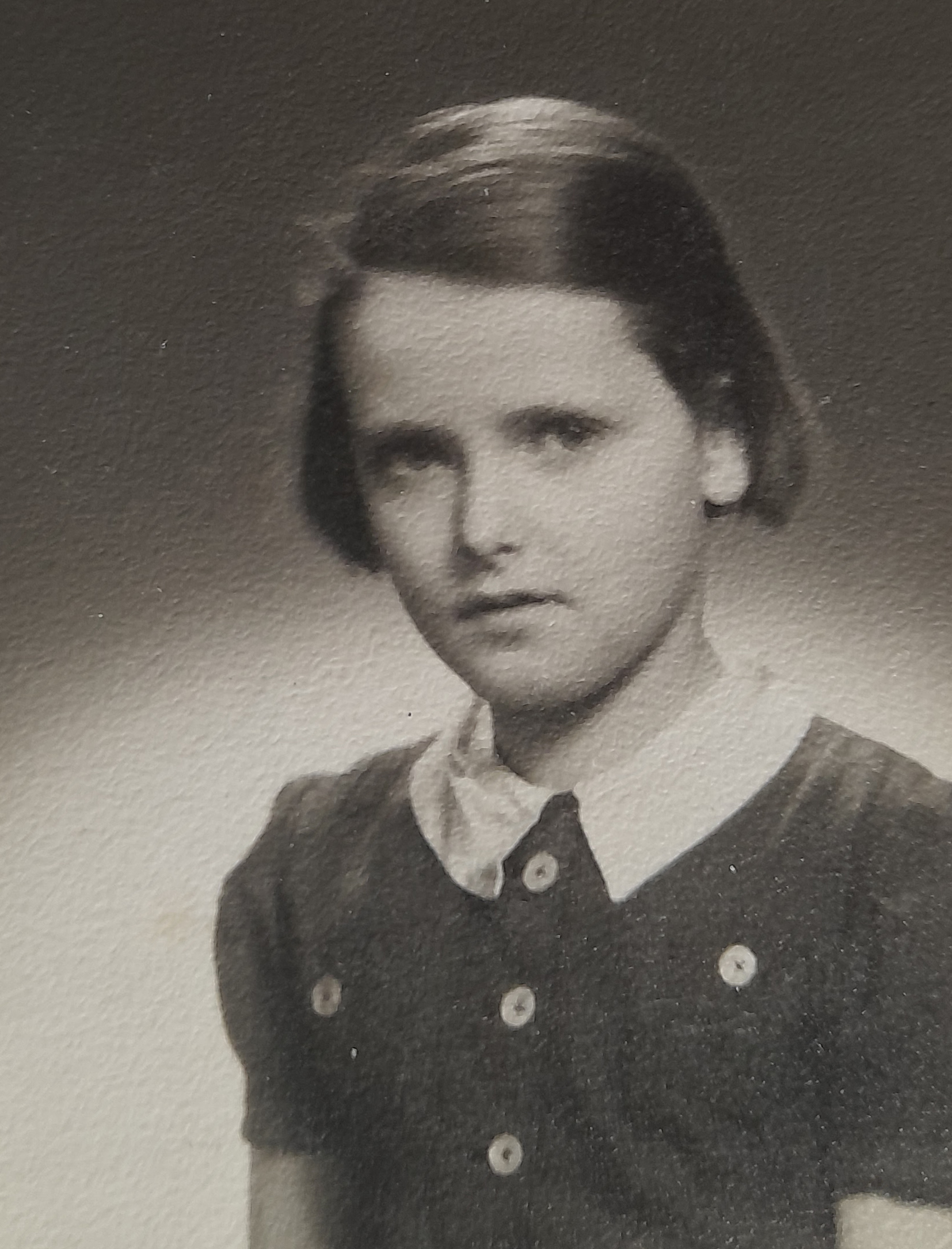
Download image
Dagmar Váchová was born on the 13th of February 1938 in Prague to the family of Prokop and Stella Domorázek. She had a four years older sister, Jana. Her father was an agricultural engineer, university pedagogue and a member of the Czechoslovak Academy of Sciences. Her mother was in the household. Both of her parents were focused on art. Her father painted and sculpted in his free time, her mother visited sculpting lessons. The Domorázek family lived in Prague in Vinohrady. Their family line from their father’s side had Jewish ancestors, but the family was saved and protected from the transport by the parish priest František Dobiáš, when he changed their baptism certificates. Prokop Domorázek was active in a resistance group that was connected to the Beroun communist cell and in the year 1943 he was arrested by the Gestapo. Maybe only thanks to lucky circumstances did he manage to avoid the death penalty and survived the cruel treatment in the German prisons until the end of the war. Stella Domorázková remained without means for the duration of her husband’s imprisonment, but still in the year 1945 she took a ten-year-old Jewish boy from a mixed family under her care, who was left without his parents for several months. After the war Dagmar’s father joined the Communist Party of Czechoslovakia in the honest belief for a better society. But during the fifties her father was thrown out of the party because he refused to acknowledge the thoughts of the Soviet agronomic Lysenko as scientific as specified by the political order at the time. He also lost his job as a pedagogue at the agricultural university and was thrown out of the Academy of Sciences. Dagmar studied at an agricultural high school in Mělník. In the day of her graduation, in the year 1957, under the influence of her favourite teacher she joined the Communist Party of Czechoslovakia. She then distance studied the agricultural university in Prague. In the middle of the sixties she got married and in the year 1968 she gave birth to a son. At the beginning of the seventies she did not manage to get through the proof examinations, when she did not agree with the Soviet occupation, and was thrown out of the party. Thankfully it did not influence her professional life. After a four year parental leave she started working at the Central Institute of Control and Test Agriculture at the post of a quality inspector. After the revolution in the year 1989 she started attending Christian gatherings and followed a path of faith. She worked as a volunteer for twenty-five years, helping the people who survived the Holocaust. She made available spiritual and psychological guidance for them.
